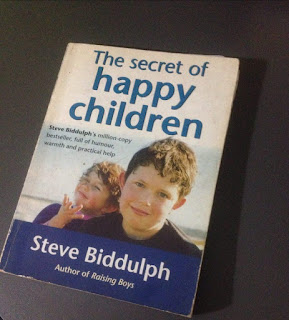The Secret of Happy Children
Beberapa bulan lepas, I went to my youngest boy’s school for
his report card. Kami antara yang awal tiba di sekolah anak. As we were waiting
for our turn, adalah sepasang ibu bapa ni yang kusyuk mendengar penerangan
cikgu kelas tentang prestasi anaknya. Yang menariknya tentang ibu bapa ni, habis
saja cikgu bercakap si ibu started to ramble tentang anaknya. I’m not going to
go into the details of what she said but agak panjang lebar jugak la her
ramblings (dan her ramblings were audible enough for me to hear the details of
things she said or complained). When it was our turn, cikgu tunjukkan keputusan
ujian my boy and his result was no surprise to me. I looked at his result,
nodded, thanked the teacher, signed off the papers and went off.
#DiariWardina
Berbalik kepada cerita the rambling mom, kekadang saya tak
faham what did she gain from her non-stop rambling tu? Ada certain things yang
dia cakap tu are beyond the teacher’s control, and boleh jadi sebab attitude
anak itu sendiri. Kenapa perlu highlight apa yang tak betul di mata dia tentang
si anak? Boleh tak simpan sikit your bebalan tu dekat rumah? Anak-anak kita pon
ada perasaan malu. Bukan ibubapa je yang nak save face, anak pon nak jaga air
muka dia.
What this mom did mengingatkan saya kepada this particular
book I read earlier this year, ‘The Secret of Happy Children’. I found this
treasure among the preloved items at the car boot sales. I was drawn to this
book because I wanted to know the key to ensuring that my boys grow up happily.
According to Steve Biddulph, unhappy and stressful adults are the result of
growing up in unhappy environment. It is no surprise when studies show that
parents who are abusive (either verbally or physically) to their kids went
through similar experience, they too were abused at some point as children. Perlakuan
si ibu mengadu tentang anaknya menyalahi the very first rule of parenting;
putting-down her child. What many of us don’t realise is that, some of the
things we said to our children or about our kids to others will impact them
later in live and may be for the rest of their lives they will feel they are
never good enough.
Apa maksud put-down? Contoh put-down; “You’re good for
nothing child!”, “Why are you so stupid?”. Children who kept being told these
put-downs, will slowly grow up to be whatever put-down the parents labelled them
by. Kenapa? Because they are only living up to their parents’ expectation (My
apology, saya tak tahu macam mana nak interpret ‘living up to expectation’). This
bit about living up to expectation mengingatkan saya pesan seorang ustaz, ibu
ayah mesti selalu doakan yang baik-baik untuk anak-anak. Mungkin kita tak sedar
yang setiap tutur kata kita juga adalah satu bentuk doa even if we didn’t mean
what we said. As Muslims, we should be wary of everything we said sebab kita tak
tahu bila Allah akan angkat dan makbulkan kata-kata itu. I’m sure
all parents want only the best for their children. Pada saya in order for the
kids to have and be the best, we must first set the best example for them to
follow especially dalam tutur kata kita. Children who verbally abuse other
children, most of the time are by-product of verbal abuse at home. The kids are
merely copying whatever words we throw at them. So parents, be more selective of the words you
say to your kids or about your kids or other kids for that matter. Children especially
our little ones, their brains are like sponges; they absorbed every word we
said, every act we did.
Berbalik kepada si ibu tadi, not only was she complaining
but also comparing anak dia dengan orang lain. This is another violation of
good parenting; never compare one child to another. Contoh comparing; “Why can’t
you be good and smart like your brother?”, “Tengok anak jiran tu boleh je dapat
8A”. Bila kita tuturkan kata-kata sebegini sepertinya kita lupa yang every
person is created uniquely by the Creator. Pergilah ke segala pelusuk dunia,
you will never find 2 persons with 100% similarity not even among identical
twins. Setiap kita mempunyai wajah yang berbeza kan? Kalau pon ada pelanduk dua
serupa pasti ada saja features that differentiate the two. Kalau dah Maha
Pencipta created us unique from one another, pastinya our strengths, our
weaknesses pon berbeza kan. Kenapa kita diciptakan berbeza? Supaya kita saling complement
each other bukan competing. Paling parah bila ibuayah membanding-bandingkan
antara anak-anak. Cukup lah dengan rat-race that they have to cope with, tak
kan dengan adik-beradik sendiri pon nak compete? Shouldn’t siblings be helping
each other when one is in need of help? Please parents, if you want your
children to live happily and be better in life, apply these rules. You’ll
notice the difference in your children. Happy children will grow up to be happy
adults. #DiariWardina


Comments
Post a Comment